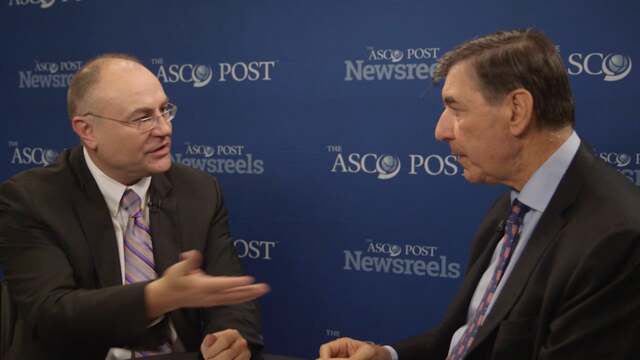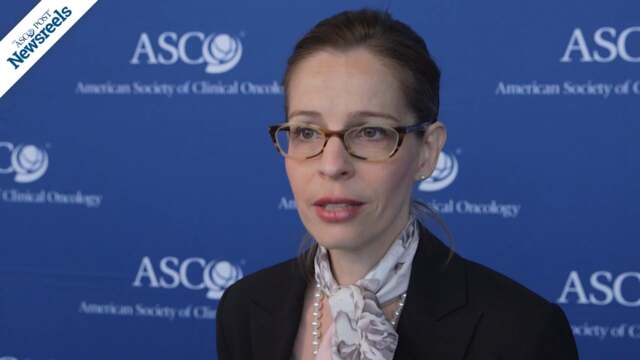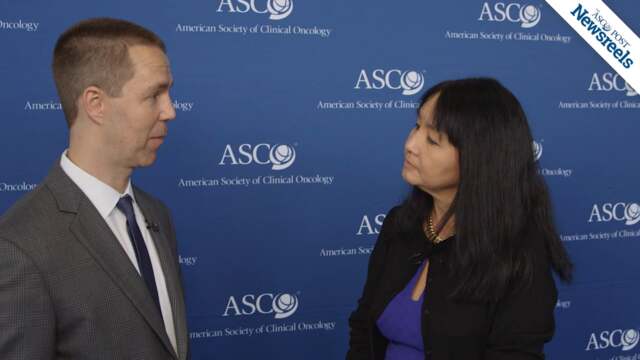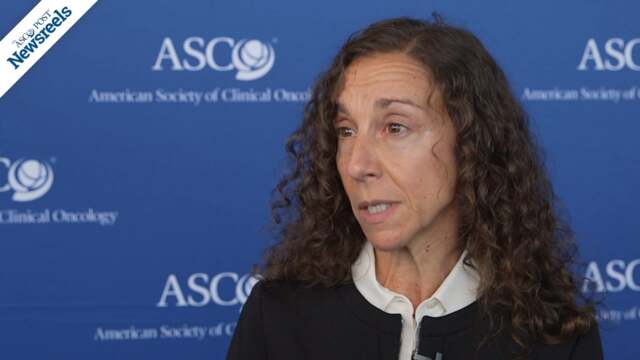Vali A. Papadimitrakopoulou, MD, and Fabrice Denis, MD, PhD, on Lung Cancer: Improving Survival With an App
2016 ASCO Annual Meeting
Vali A. Papadimitrakopoulou, MD, of MD Anderson Cancer Center, and Fabrice Denis, MD, PhD, of the Institut Inter-regional de Cancérologie Jean Bernard, discuss findings from a phase III trial on an app used between visits for early detection of symptomatic relapse and complications in high-risk lung cancer patients (Abstract LBA9006). To see Dr. Denis discuss this study in French, click here.
 To see the French language version of this discussion, click here.
To see the French language version of this discussion, click here.
Heinz-Josef Lenz, MD, of the University of Southern California, and Marc Ychou, MD, of the Centre Régional de Lutte Contre Le Cancer, discuss study findings on FOLFIRINOX combined with targeted therapy according to RAS status for colorectal cancer patients with initially nonresectable liver metastases (Abstract 3512).
Julie Lemieux, MD, of Centre Hospitalier Universitaire de Québec, discusses in French patient-reported outcomes from a study extending adjuvant letrozole for 5 years after completing an initial 5 years of aromatase inhibitor therapy alone or preceded by tamoxifen (Abstract LBA506).

To see the English language version of this video, please
click here.
Eric Roeland, MD, of the University of California, San Diego, and Linda Van Le, MD, of the University of North Carolina discuss ways to manage symptoms that affect up to 80% of postmenopausal women, diminishing their quality of life.
Julie R. Park, MD, of Seattle Children’s Hospital, discusses findings from this phase III trial of tandem myeloablative autologous stem cell transplant using peripheral blood stem cell as consolidation therapy for high-risk neuroblastoma (Abstract LBA3).
Vali A. Papadimitrakopoulou, MD, of MD Anderson Cancer Center, and Heather A. Wakelee, MD, of Stanford University, discuss findings on adjuvant chemotherapy with or without bevacizumab for early-stage non–small cell lung cancer, with outcomes based on chemotherapy subsets (Abstract 8507).
To see the French language version of this discussion, click here.





